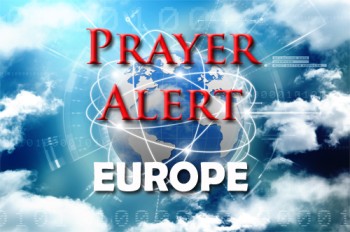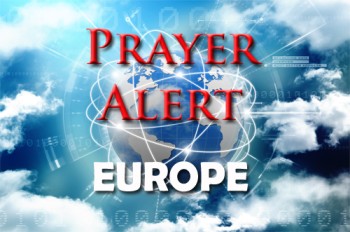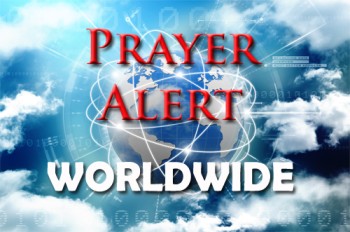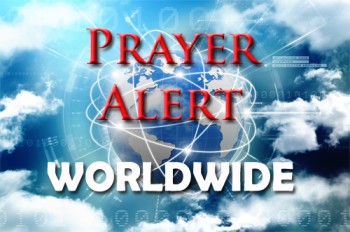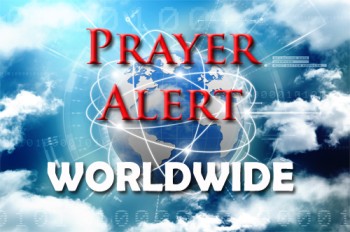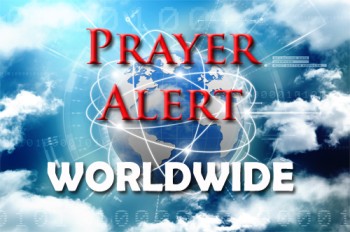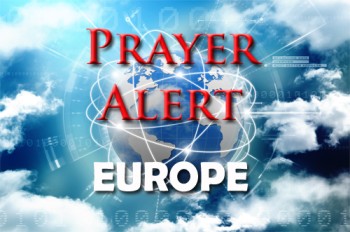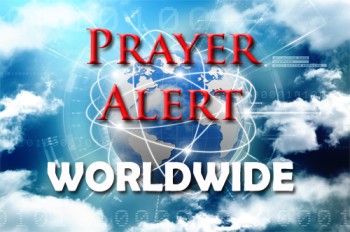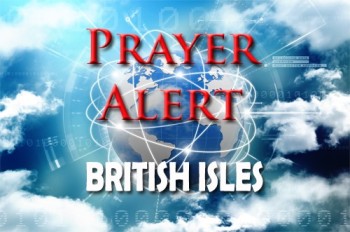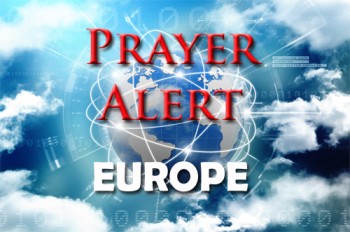Displaying items by tag: Donald Trump
Ukraine: Zelensky’s response to Trump’s criticisms
Donald Trump’s push to end the war in Ukraine is increasingly shaped by his impatience with Volodymyr Zelenskyy and European leaders who he believes are obstructing peace and future US–Russia economic ties. Stating that ‘Russia has the upper hand’ (a claim disputed by experts), he insisted Zelensky must ‘play ball’. Meanwhile, Zelensky and European partners worked to revise the US-led peace proposal, removing provisions which they considered unacceptable and stressing the need for firm security guarantees. Many commentators, alarmed by Trump’s pressure on Kyiv and his favourable posture toward Moscow, warn that conceding to Russia would reward aggression and endanger broader European security. In reply to Trump’s claim that Zelensky is using the war as an excuse to avoid holding elections, Zelensky has offered to do so if security could be guaranteed, although it would mean altering the constitution: see
Responses to Trump’s criticisms of ‘weak, decaying’ Europe
Donald Trump has intensified his criticism of Europe, portraying the continent as weak’, ‘decaying’, and threatened by immigration. Using inflammatory language, he echoed ‘great replacement’ conspiracy themes, claiming that European countries risk becoming non-viable due to immigration. He insisted European cities such as London and Paris have fundamentally altered, and once again made a personal attack on London’s mayor Sadiq Khan. His remarks followed the recent release of a new US national security strategy warning of Europe’s supposed ‘civilisational erasure’ and signalling support for nationalist parties. European leaders reacted with dismay: Germany’s chancellor Friedrich Merz rejected the idea that Europe needs saving, calling parts of the strategy unacceptable. Pope Leo XIV also cautioned that the shift in US policy risks damaging the long-standing transatlantic alliance, and European Council president António Costa warned Trump not to interfere in Europe’s affairs (see).
Thailand / Cambodia: more than half a million displaced by renewed fighting
Fighting between Thailand and Cambodia has escalated into a third consecutive day of violence, forcing more than half a million civilians to flee their homes. Both governments accuse each other of reigniting the conflict, which has already killed soldiers and civilians and triggered mass evacuations from border provinces. Reports describe rockets landing near hospitals, air raids conducted by Thai F-16 jets, and Cambodian artillery targeting Thai territory, leaving thousands in makeshift shelters with limited supplies. The clashes are the deadliest since five days of fighting in July which killed dozens and displaced some 300,000 people on both sides of the border before a shaky truce was agreed, following an intervention by Donald Trump. Trump said late on Tuesday that he would make a phone call to stop the renewed fighting. Even so, analysts say that the lack of willingness to negotiate suggests the conflict may be prolonged. Latest news - three civilians have been killed inside Thailand: see
Minneapolis: pepper spray used on protesters against crackdown on Somalis
A confrontation between federal agents and residents in a Somali neighbourhood of Minneapolis has heightened fear and tension within the community. Witnesses reported that ICE agents used pepper spray to disperse a crowd of protesters after checking identifications in restaurants, on the streets, and at a senior housing complex. The crackdown follows the decision by Donald Trump to end temporary protected status for Somalis, calling them ‘garbage’ and saying he does not want them in the country. The move has drawn denunciations from leaders of the Somali community and governor Tim Walz. About 84,000 of the 260,000 Somalis in the country live in the Minneapolis-St Paul area, the overwhelming majority of them US citizens. Over half were born in the U.S., and 87 per cent of those born elsewhere are naturalised citizens. Federal officials justify the operation as targeting criminals, giving details of nine criminals who have been arrested recently, but local leaders argue that such actions unfairly stigmatise an entire community.
Venezuela / USA: Trump’s increasing pressure on Maduro
On 21 November, weeks of escalating threats, military posturing, and diplomatic tension culminated not in conflict but in a stark phone call in which Donald Trump reportedly issued Nicolás Maduro an ultimatum: leave Venezuela immediately or face the consequences. This shows that Trump is not easing pressure and may be edging closer to military action, despite earlier signs of potential compromise through envoy Richard Grenell’s negotiations which freed US detainees and reopened migrant returns. Analysts note that while advisers like Marco Rubio influence policy, Trump himself has long viewed Venezuela as unfinished business touching on his key concerns - migration, drugs, and China. Trump’s resort to a threatening phone call may in itself be a response to the Venezuelan armed forces’ refusal to buckle before the overwhelming US military presence. Experts warn that a ‘decapitation strike’ targeting Maduro is conceivable, with the justification that he is an illegitimate leader after stealing two elections. Observers say Trump is using intimidation to force concessions while leaving the door open to rapid escalation.
Honduras: manual recount necessary for presidential election result
The Honduran presidential election has become increasingly tense after the National Electoral Council (CNE) announced a full manual recount of the 30 November vote. Currently there is a wafer-thin margin between the two leading candidates, which has prompted the CNE to announce a ‘technical tie’; it is calling for patience while all the votes are counted manually. Donald Trump sharply criticised the process on social media, accusing the authorities of attempting to alter the outcome and warning that there would be ‘hell to pay’ if his preferred candidate, Nasry Asfura, is not declared the winner. Asfura, a right-wing former mayor, held a lead of just over 500 votes with more than half of ballots counted. His centrist rival, Salvador Nasralla, cited internal projections suggesting he was ahead but refrained from claiming victory. Whatever the final outcome, the election is a clear defeat for the country’s ruling left-wing, whose candidate, Rixi Moncada, only has 19% of the vote.
Ukraine: differing signals about peace proposals
Hopes of a swift peace agreement to end Russia’s invasion of Ukraine have been tempered after the Kremlin cautioned against assuming a deal is close. Spokesman Dmitry Peskov said it was ‘premature’ to suggest a resolution may soon be reached, adding that outside actors - including the USA - might try to derail progress. His remarks followed more optimistic comments from Kremlin aide Yuri Ushakov, who confirmed Moscow had received a revised US-backed proposal developed with Ukrainian officials. Transcripts of leaked conversations suggest Russian negotiators believe the final document could align closely with their demands, while Steve Witkoff is expected to meet Vladimir Putin for further talks. Donald Trump has repeatedly highlighted what he calls strong momentum, claiming major points of disagreement have already been resolved. Yet elements reportedly included in draft proposals, such as Ukraine relinquishing the Donetsk region and abandoning NATO ambitions, remain deeply contentious for Kyiv. Diplomatic negotiations continue amid uncertainty and conflicting public signals.
Nigeria: danger of mass starvation in 2026
Northern Nigeria is facing a rapidly escalating hunger emergency as militant attacks make it too dangerous for farmers to work their land. According to a new World Food Programme (WFP) report, Nigeria is on track to experience the worst-ever food crisis in Africa next year, with an estimated 35 million people expected to suffer severe hunger. In Borno state, the centre of ongoing insurgencies, at least 15,000 people are projected to face catastrophic hunger including famine-like conditions, as it is now classified at the highest level of food crisis severity. Violence from armed groups has spread, including recent kidnappings and the arrival of an al-Qaeda-linked faction claiming attacks in Nigeria for the first time. The crisis has been intensified by a major reduction in humanitarian aid following Donald Trump’s decision to withdraw US funding from the WFP. Without renewed support, millions may be left without critical food assistance, deepening instability and human suffering across the region.
Trump says he has 'obligation' to sue BBC because 'it defrauded the public'
Donald Trump has intensified his criticism of the BBC, threatening a billion-dollar lawsuit over what he claims was a dishonest editing of a speech he delivered before the 6 January 2021 Capitol riot. The threat follows the resignation of BBC director-general Tim Davie, who stepped down amid the controversy. Trump told Fox News he felt an 'obligation' to sue, accusing the broadcaster of 'defrauding the public' and turning what he described as a calming speech into something radical. His legal team has demanded a full retraction of what they consider defamatory statements, warning that failure to comply will trigger legal action. Sir Ed Davey has urged Keir Starmer to ask Trump to drop the lawsuit. Starmer defended the BBC as a vital and independent institution, across the world, while acknowledging the need for accuracy and accountability. Culture secretary Lisa Nandy warned MPs against undermining the broadcaster, emphasising its national importance as charter review approaches. The situation has reignited debates around impartiality, political pressure, and the future governance of the BBC.
Hungary / USA: Trump gives one-year exemption from sanctions
Donald Trump has granted Hungary a one-year exemption from US sanctions on Russian oil and gas purchases, marking a diplomatic win for Viktor Orbán. The move followed Orbán’s visit to Washington, where Trump expressed sympathy for Hungary’s dependence on Russian energy as a landlocked nation. The decision contrasts sharply with Trump’s recent threats to penalise countries doing business with sanctioned Russian energy firms. In return, Hungary agreed to buy hundreds of millions of dollars’ worth of US natural gas. While the arrangement may ease Hungary’s energy pressures, it risks deepening tensions within the EU, where many leaders oppose Orbán’s continued cooperation with Moscow. Trump praised Orbán’s leadership and hinted at shared goals for ending the war in Ukraine, underscoring their close personal and political alliance amid growing divisions over energy, sanctions, and peace strategy in Europe.
